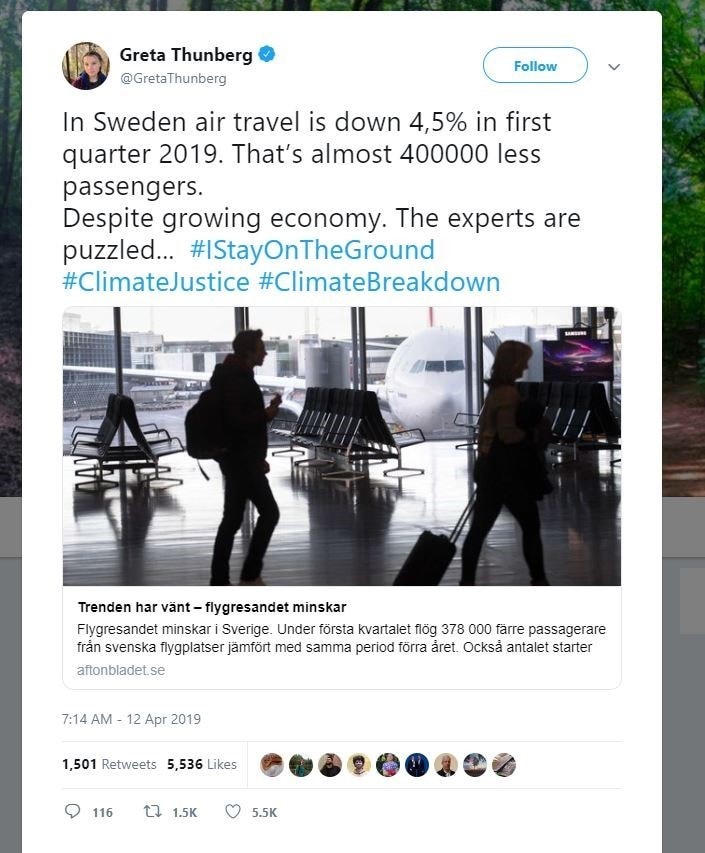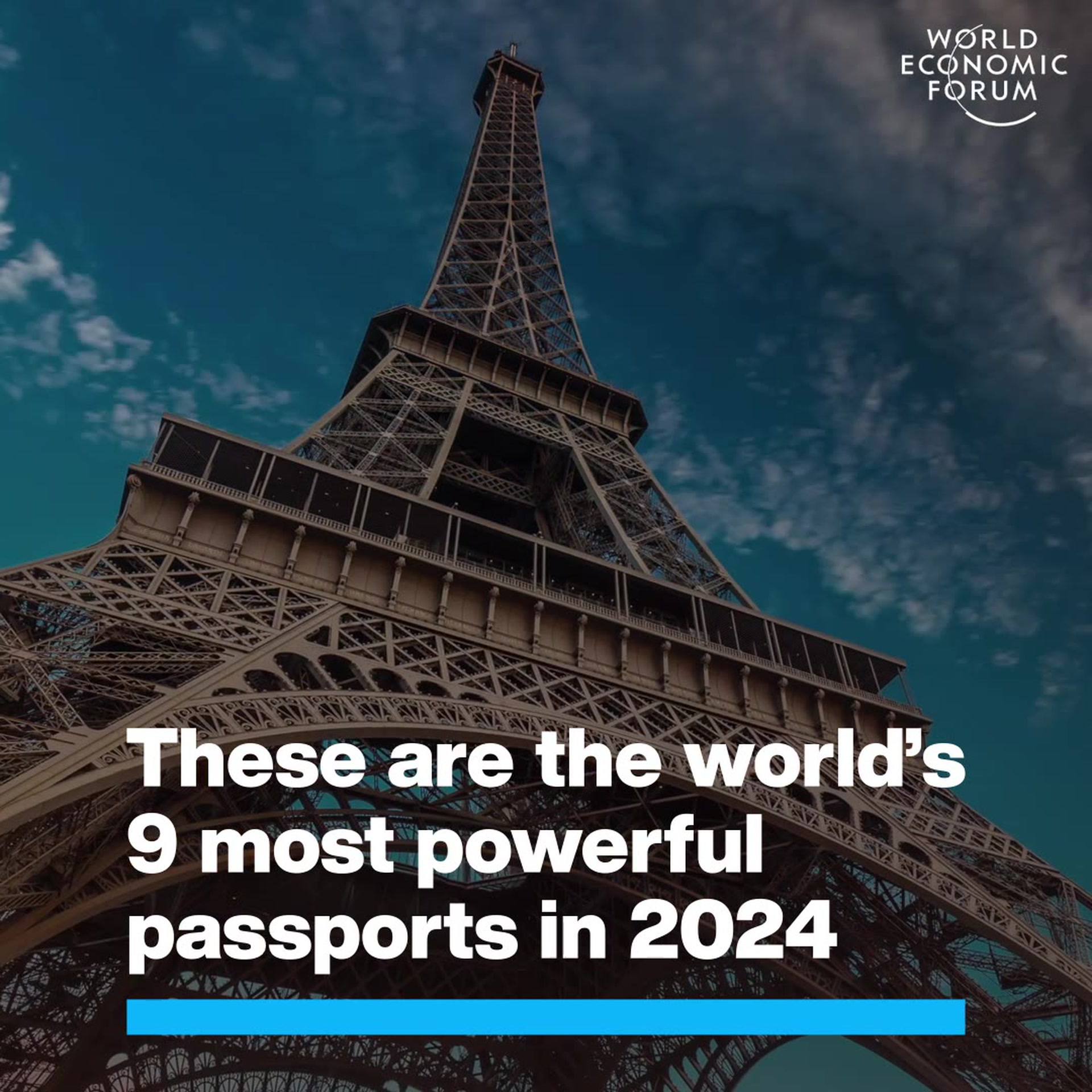Sweden has invented a word to encourage people not to fly. And it’s working

The introduction of the word 'flygskam' coincides with an 8% drop in passenger numbers at Swedish airports. Image: REUTERS/Ints Kalnins

Get involved with our crowdsourced digital platform to deliver impact at scale
Stay up to date:
Travel and Tourism
Sweden’s departure lounges are looking less crowded as more Swedes are deciding to take the train rather than fly.
Passenger numbers at Swedish airports have dropped 8% so far this year. The fall-off coincides with the rise of Sweden’s latest buzzword: “flygskam”, or flight shame.
As the full extent of climate change becomes ever more apparent, fewer Swedes are willing to travel in a way they see as harmful to the environment.
The impact has been particularly felt on domestic flights, with passenger numbers down by 15% in April alone, compared with last year. In a recent survey, a quarter of Swedes said they had decided not to fly to save the planet.
All change for Swedish sunseekers
Swedes used to be among Europe’s most frequent fliers, travelling long-haul to escape the long Scandanavian winters. Swedish travel firm Ving pioneered tourism in African countries like Gambia in the 1970s.
But nowadays they prefer to take the train, even for long journeys. Greta Thunberg, the teenage Swedish climate activist, took a 65-hour return train journey to make her powerful speech at the World Economic Forum Annual Meeting earlier this year.
“I don’t want your hope. I want you to panic,” she told the meeting. “I want you to feel the fear I do. Every day. And I want you to act. I want you to behave like our house is on fire. Because it is.”
Environmental website ecopassenger.org calculates that Greta’s train journey to Davos, Switzerland, emitted just 44 kilograms of CO2, compared to an expected 262 kilograms had gone by plane.
Railing against emissions
Swedes took two million extra rail journeys last year. And, as you would expect, they have a special word for that, too. "Tagskryt" means train bragging, and it’s widely used on social media by those who want to encourage others to do the same.
There is even a Facebook group where Swedes who prefer to make international trips by train chronicle their journeys.
The trend is popular with families who say children love to see new countries en route to a beach holiday in Italy or Spain.
Now the Swedish government says it wants to reintroduce overnight sleeper trains to cities across Europe, invoking environmental benefits and the glamour of the golden era of railways. It is investing $5 million in the project this year alone.
But the airline industry is fighting back with a promise that a new generation of planes will halve emissions by 2050. It says the annual 860 million tonnes of CO2 the industry currently generates is only 2% of world emissions.
Don't miss any update on this topic
Create a free account and access your personalized content collection with our latest publications and analyses.
License and Republishing
World Economic Forum articles may be republished in accordance with the Creative Commons Attribution-NonCommercial-NoDerivatives 4.0 International Public License, and in accordance with our Terms of Use.
The views expressed in this article are those of the author alone and not the World Economic Forum.
Related topics:
The Agenda Weekly
A weekly update of the most important issues driving the global agenda
You can unsubscribe at any time using the link in our emails. For more details, review our privacy policy.
More on Travel and TourismSee all
Naoko Tochibayashi and Naoko Kutty
March 28, 2024
Abeer Al Akel and Maimunah Mohd Sharif
February 15, 2024
Priya Singh
February 8, 2024
Thea de Gallier
January 31, 2024









